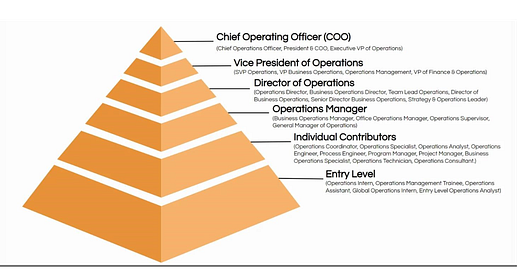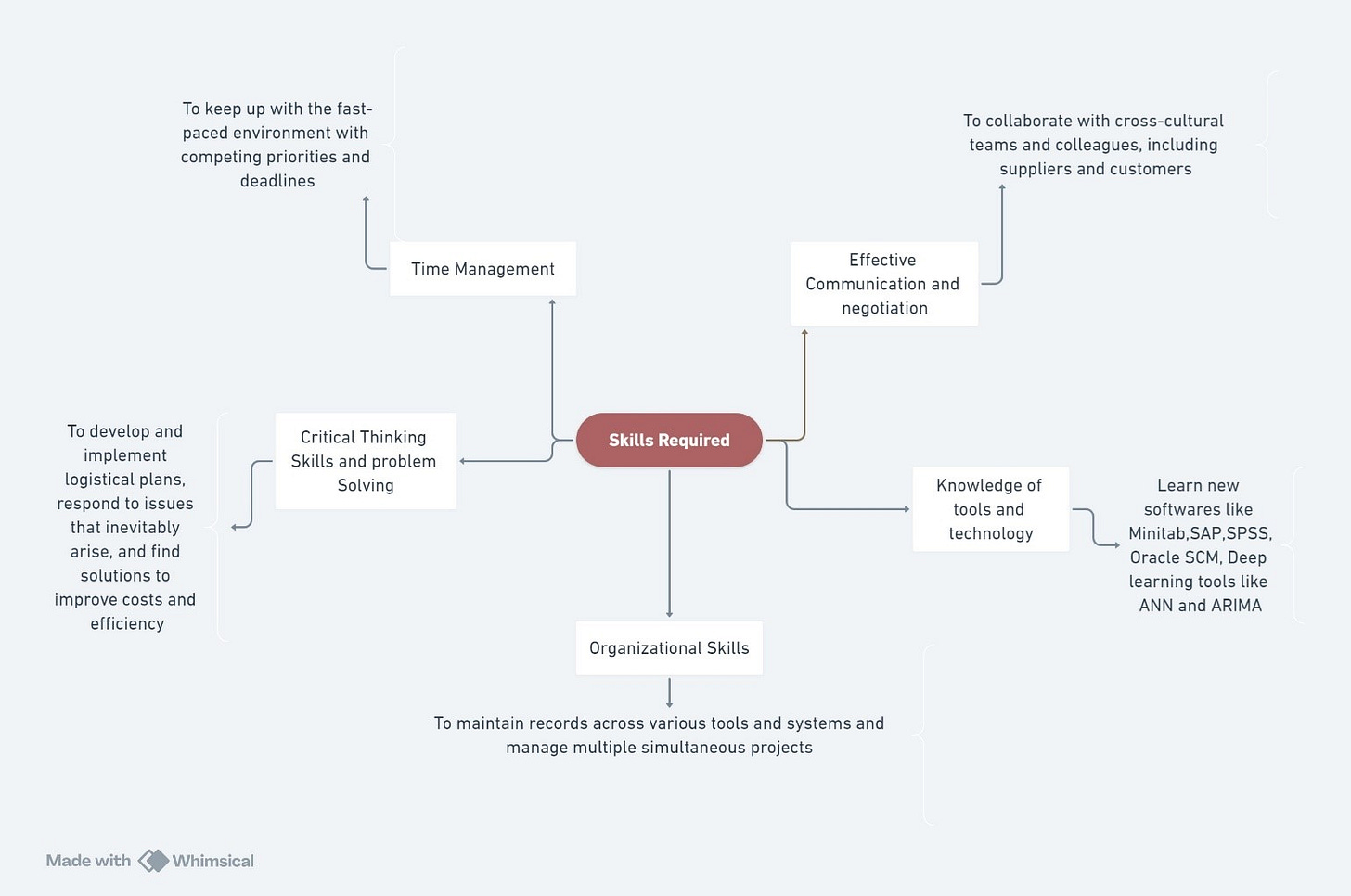Operational Insights: Mapping the Supply Chain Horizon
Helping Bitsians navigate through the world of OSCM
Want to know more about one of the most demanded job profiles on campus? Want to explore more into the intricacies of Supply Chain management and operations, but have no clue where to start from? Fear not, after reading this article you’ll have a much clearer idea about this domain and what exactly can one do to pursue a career in this field. Further we’ll also discuss about the various facilities and opportunities our wonderful campus provides us with to hone our skills and make us better equipped for internships and placements.
Let’s start with the basic question
What is operations and supply chain management (OSCM)?
Operations and Supply Chain Management (OSCM) is like the captain steering a ship through all the tasks of getting things from start to finish in a business. It involves everything from getting materials to planning how things should be done, delivering products, managing stock, and making sure everything runs smoothly. This is true for both manufacturing and providing services.
The main aim of supply chain and operations management is to help businesses do things better and cheaper. It's about making sure all the parts work well together so that the whole process is efficient, effective, and saves money for the organization.
OSCM is critical to all businesses since it includes the planning and execution of all the actions required to produce goods and services. It involves controlling the movement of resources, data, and money throughout the full value chain, from suppliers to clients.
The Difference Between Supply Chain Management and Operations Management
1. The major difference between supply chain management and operations management is that the supply chain is mainly concerned with what happens outside the company – obtaining materials and delivering products – while operations management is concerned with what happens inside the company. This means the supply chain manager spends time negotiating contracts and evaluating suppliers, whereas the operations manager is often planning and overseeing the daily operations and processes.
2. Supply chain management activities are generally the same across industries; however, operations management roles and responsibilities can vary widely depending on the product or service the business produces.
Job Profiles in OSCM
1. Logistics Analyst: Logistics analysts monitor the supply chain process to identify inefficiencies and suggest improvements. They manage aspects like invoicing, shipment tracking and billing. A Logistics Analyst gathers and interprets data about sustainability, reliability, sourcing and availability to optimize transportation, procurement and delivery processes. Usually, logistics analysts prepare monthly reports with information about service, cost and overall performance. Logistics analysts are skilled in shipping and receiving, supply chain analysis, data software and warehouse management.
2. Transport Manager: Transport managers plan routes and tracking for transportation to ensure that cargo is transported and delivered efficiently. Transport managers implement procedures that comply with regulations, safety guidelines and union contracts.
3. Supply Chain Specialist: They create strategies to increase efficiency in the supply chain system and collaborate with other departments to close operational gaps. Supply chain specialists balance safety, cost management and business growth when preparing reports. A supply chain specialist is skilled in logistics, procurement and manufacturing.
4. Operations Manager: Oversees operations, motivating employees, making strategic decisions and helping the hiring department recruit the best professionals for their company. An operations manager may also supervise document reports to ensure staff file them according to laws and regulations and act as a third party between working staff and management. Operations managers are skilled in process improvement, retail, analysis, communication and computer literacy.
5. Data Analyst: A data analyst looks at complex sets of information to develop conclusions and may lead processes for gathering and reporting on new data. They may work in industries like finance, marketing, healthcare and manufacturing. A data analyst is skilled in data mining, logistics, statistics and data management software
What are the skills we need to develop to build a career in OSCM?
Top Recruiters in SCM and Operations:
Base Compensation:
Hindustan Unilever and P&G offer Rs. 2.2 lakhs per month stipend as part of their summer internship program.
So now after knowing all this about the OSCM you must be wondering how to go ahead and pursue this in your college academics.
Bits Pilani helps many students every year to delve deeper into the realm of supply chains with its minor in supply chain analytics, which consists of a number of courses. Ten courses are offered, five of which must be completed for a student to receive a degree. Three of these five are core courses, meaning they must be taken, while the remaining two are electives that students can choose from a list of seven courses.
Below is a quick summary of each of the core courses:
1. (BITS F455) Analytics for Supply Chain- The foundations and tools/techniques of data analytics in the SCM domain will be covered in this course. The goal here is to comprehend the data requirements, data sources, and how to use data for supply chain choices in order to increase supply chain surplus. The limitations and challenges of supply chain management theories in addressing actual problems will be discussed, along with basic theories in business practice. This course's main goal is to assist students in developing the skills necessary to become skilled analysts and supply chain managers.
2. (MF F319) Supply chain management- The aim is to become acquainted with the principles of supply chain management (SCM) and its application in businesses looking to stand out from the competition and offer a foundation for supply chain analytics. Students who complete the course will be able to understand supply chains and how they are managed with more clarity and understanding. It will help with the understanding of supply chain management (SCM), which is a business approach for firms looking to gain a competitive edge rather than a technical problem.
3. (MF F422) Supply Chain Modelling and Empirical Analysis- The course aims to explain the notion of decision making based on the opinions of several experts on a range of supply chain methods, strategies, and difficulties. Another goal of this course is to build skill sets for analyzing qualitative data, with an emphasis on empirical modelling for data-driven supply chain decisions. In order to support evidence-driven decision making in the supply chain, the course gives students the chance to gain clarity and understanding into the use of various supply chain modelling methodologies and empirical analysis.
Apart from the courses following electives are also offered in this minor program-
1. Quality control assurance and reliability (ME F443)
2. Procurement Management (MF F321)
3. Lean Manufacturing (MF F418)
4. Sustainable Manufacturing (MF F485)
5. Operations Research (MATH F242)
6. Statical Inference and application (MATH F353)
7. Optimization (MATH F212)/ Engineering Optimization (MF F320)
The minor program aims to create supply chain specialists for the modern and next corporate environments. Through the training, students will be able to expand their knowledge base and get a strong foundation in supply chain and supply chain analytics in general. It is highly recommended to each student interested in the field of OSCM.







